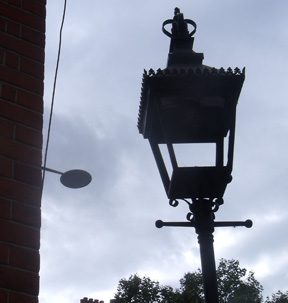Those who have had contact with the police through being a victim or witness of crime, or having been stopped and searched, are more likely to express dissatisfaction in policing. That is according to an Ipsos MORI survey, the first of its kind commissioned by the Government’s police inspectorate. Some 26,000 people across England and Wales completed the 2015 survey.
The report on Her Majesty’s Inspectorate of Constabulary website also shows the views of people living in urban and rural areas and people living in affluent and deprived areas has an impact on how they view local policing service. In other words, those living in more deprived neighbourhoods are significantly more likely to feel unsafe and feel crime/anti-social behaviour is a big problem locally.
HM Inspector Mike Cunningham said: “How the police are viewed by members of the public is vitally important as it impacts upon feelings of safety and how confident they are in reporting a crime. We commissioned this survey in order to inform our inspection programme and have already begun to use these findings to inform the questions we ask of police forces. By sharing our findings today we can see that the majority of people feel safe in their local area and are satisfied with the work of local police officers.
“We will continue to work with forces to improve the way in which they engage with members of the public to ensure that people are confident in reporting crime.”
Almost a third of respondents had contact with local police in the last year. Those who feel better informed about local policing are far more likely to feel confident, it’s suggested. Visibility of uniformed police presence and response times to non-emergencies are factors where the balance of opinion is most negative regarding change. In both cases, four times as many people say they have got worse than better. While 44pc said visibility of the uniformed police presence over the last year had stayed the same, 35pc said it had got worse.
Police visibility is explicitly stated as being important to people. Around a quarter note that they have seen a uniformed police presence at least monthly (26 per cent) while just over a third say they have not seen any uniformed police presence on foot within their area in the past year. Those living in the most deprived neighbourhoods are more likely to report having seen a uniformed police presence on foot at least monthly (36pc versus 26pc across all respondents) whereas those living in the most affluent neighbourhoods are more likely to say they have not seen any uniformed police presence on foot within the past year (44 per cent versus 36pc). This illustrates, the pollsters suggest, how increased presence does not necessarily equate with greater engagement, reassurance and positivity towards the police.
Comment
Andy Burnham, Labour’s Shadow Home Secretary, said: “There is a simple reason why people go so long without seeing a bobby on the beat – Theresa May cut the police budget in each of the last six years. Everyone should feel safe in their home, at work and in their communities but, under the Tories, we’ve seen the loss of over 19,000 officers including more than 12,000 of those from the front line.
“As Home Secretary, Theresa May promised real-terms protection for the police but the statistic watchdog told her she failed to deliver it. Now that decision is entirely within her hands, she must honour her promise and protect front-line policing.”
Picture by Mark Rowe: former police blue lamp at Met Police station on Streatham High Street, south London, now disused.










